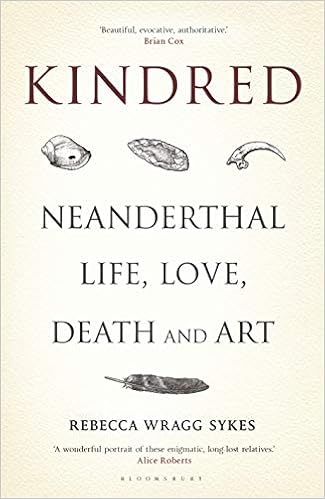
Introducing anthropologist Rebecca Wragg Sykes’s forthcoming book, Kindred: Neanderthal Life, Love, Death and Art a writer at New Scientist dismisses Darwinian assumptions of superiority without identifying their origin:
HOW we began to unpick our species’ ancient past in the late 19th century is an astounding story, but not always a pretty one. As well as attaining tremendous insights into the age of Earth and how life evolved, scholars also entertained astonishingly bad ideas about superiority.
Some of these continue today. Why do we assume that Neanderthals, who flourished for 400,000 years, were somehow inferior to Homo sapiens or less fit to survive?
In Kindred, a history of our understanding of Neanderthals, Rebecca Wragg Sykes separates perfectly valid and reasonable questions – for example, “why aren’t Neanderthals around any more?” – from the thinking that casts our ancient relatives as “dullard losers on a withered branch of the family tree”.
Simon Ings, “We are in the midst of rewriting our understanding of Neanderthals” at New Scientist
If it weren’t for Darwinism, the Neanderthals wold not have needed to be cast as subhuman. But in any Darwinian scheme, someone must be the subhuman. Otherwise, there is no beginning to human history.
Perhaps some are beginning to back away from Darwinism without speaking its name. Just quietly starting to adopt other views.